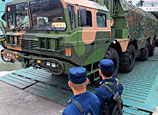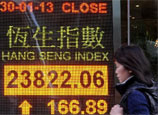
Last week, the Syrian Interior Ministry called on all the broad- based opposition political forces, and those who are desirous of taking part in the national dialogue, to come back to Syria and pledged to offer all facilities and to cut loose all legal pursuit against them.
In his latest address to the nation earlier in January, Assad struck out his three-point plan for political solution that includes: a cease-fire, followed by a comprehensive national dialogue conference, and the establishment of a broad-based government and parliament. The plan, however, was dismissed by the adamant opposition, which conditioned the president's departure as a prelude to political solution.
On Tuesday, the Joint Special Representative of the United Nations and the League of Arab States on the Syrian crisis, Lakhdar Brahimi, called on the Security Council to take action to advance a solution to the ongoing conflict, warning against any further delay.
"Syria is being destroyed bit by bit. And in destroying Syria, the region is being pushed into a situation that is extremely bad and extremely important for the entire world," Brahimi told reporters at UN Headquarters following a closed-door session with the Council.
"That is why I believe the Security Council simply cannot continue to say 'we are in disagreement, therefore, let's wait for better times.' I think they have got to grapple with this problem now," he stated.
The division among the Security Council members and also the cracks within the opposition ranks abroad seem to be conducive in further prolonging the crisis that has killed more than 60,000 people since March 2011 and left more than 4 million people in need of humanitarian assistance, according to the UN.

















 Spring Festival travel rush continues
Spring Festival travel rush continues


![]()
